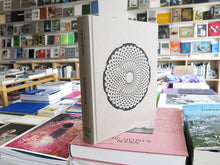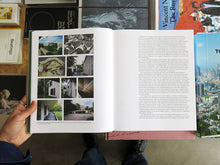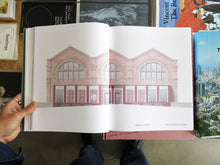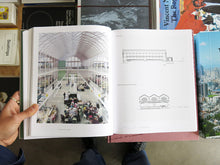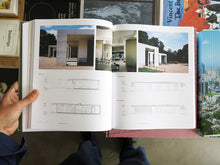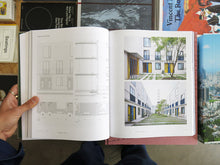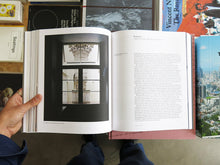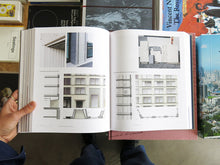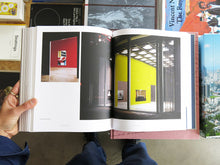
This second volume in Caruso St John’s Collected Works traces an interlacing set of themes through the celebrated practice’s work over the first twelve years of the twenty-first century. Their unique approach to history is revealed as a rejection of the myth of relentless novelty in favour of an understanding of the past as present and an interest in working with the existing. The influences of Milan, Chicago, and Rome on understandings of the city are explored, as well as the use of ornament and the place of Switzerland in shaping the practice’s evolving trajectory. Throughout these contexts, collaborations with contemporary artists including Thomas Demand and Damien Hirst continue to shape their relations to the materiality and drama of space.
This volume encompasses some of Caruso St John’s most renowned projects, including works on historic buildings such as Tate Britain and the Barbican and new projects such as Hirst’s Newport Street Gallery and Europaallee Mixed-use Building in Zurich. These are presented along with exhibition designs, competition entries, and lesser-known projects, all with an unprecedented range of materials including unseen drawings, references, and new commentaries. The cultural environment in which this work took place is captured in reviews and essays from the period and a diverse range of writings that informed Adam Caruso’s and Peter St John’s thinking and teaching, from T. S. Eliot to Rosalind Krauss to Louis Sullivan. Between these projects and lessons, references and buildings emerges an invitation to attend to the ‘alchemy of the everyday’ – one with the potential to transform our understanding of the world and the ways we continue to build it.
464 pages, 22 x 26.5 cm, embossed and silkscreened linen hardcover, MACK (London).
This volume encompasses some of Caruso St John’s most renowned projects, including works on historic buildings such as Tate Britain and the Barbican and new projects such as Hirst’s Newport Street Gallery and Europaallee Mixed-use Building in Zurich. These are presented along with exhibition designs, competition entries, and lesser-known projects, all with an unprecedented range of materials including unseen drawings, references, and new commentaries. The cultural environment in which this work took place is captured in reviews and essays from the period and a diverse range of writings that informed Adam Caruso’s and Peter St John’s thinking and teaching, from T. S. Eliot to Rosalind Krauss to Louis Sullivan. Between these projects and lessons, references and buildings emerges an invitation to attend to the ‘alchemy of the everyday’ – one with the potential to transform our understanding of the world and the ways we continue to build it.
464 pages, 22 x 26.5 cm, embossed and silkscreened linen hardcover, MACK (London).








